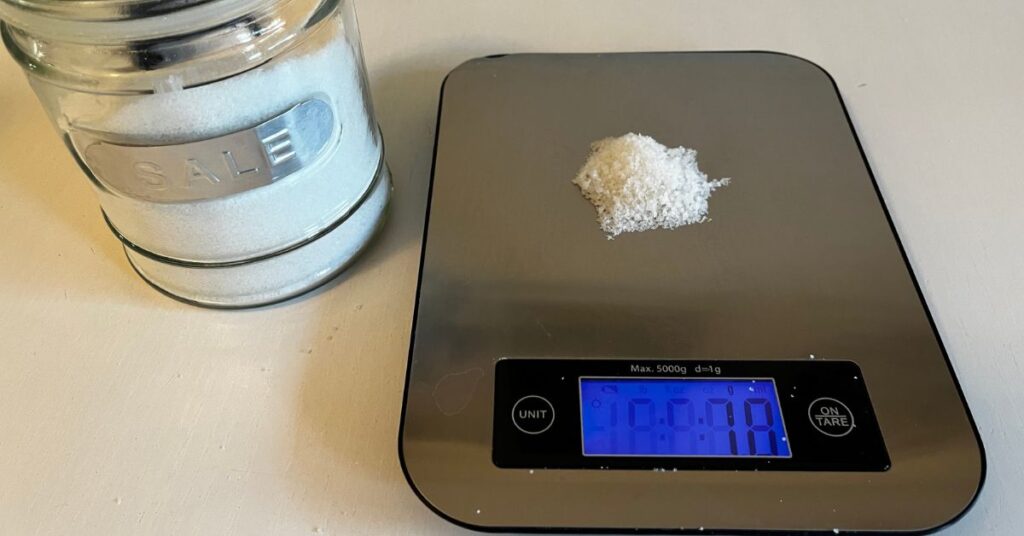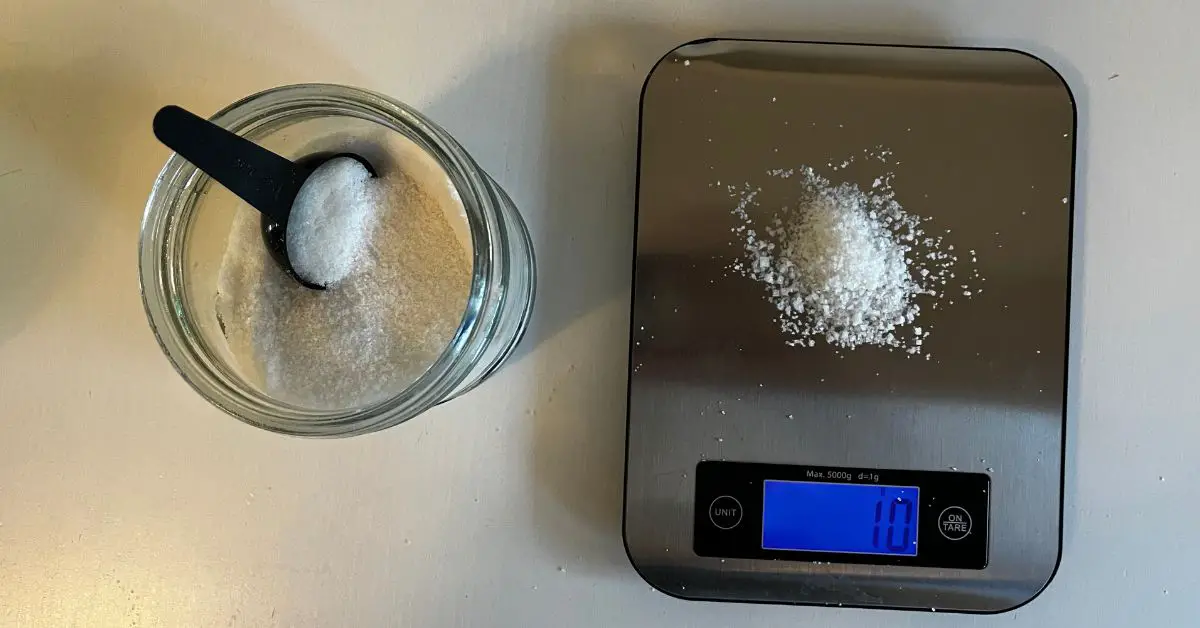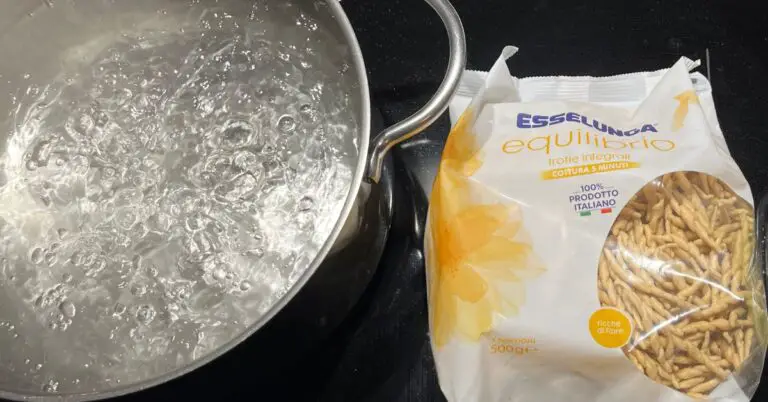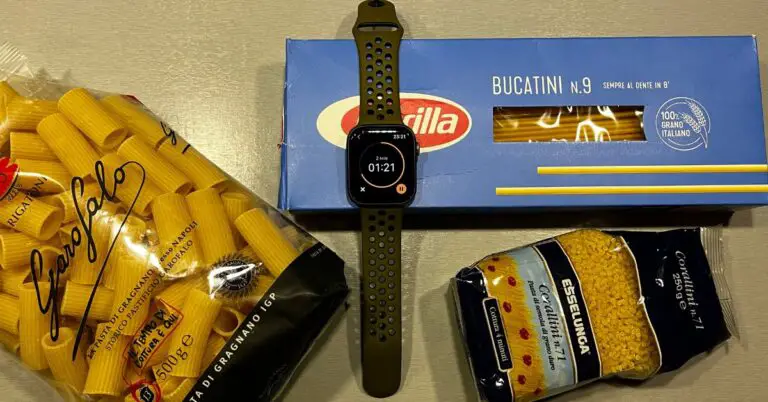Italians prefer using coarse sea salt in pasta water because it’s easier to handle and less expensive. Use about 10 grams of salt per liter of water, which is roughly 1.75 teaspoons of salt per quart of water, and add it when the water is starting to boil.
However, from a taste perspective, there’s no difference compared to table salt. If you’re wondering, yes, you can definitely use table salt for salting your pasta water.
You can use it just as effectively. Just remember to measure it accurately to ensure you’re not using too much or too little.

How Much Salt per Liter of Water for Pasta?
To properly measure the salt for perfect pasta as traditionally cooked in Italian homes, it’s recommended to use about 1.75 teaspoons of salt per quart of water for every 3.5 ounces of dry pasta. This ratio ensures the pasta is seasoned well and brings out its full flavor.

Obviously, this is a general rule, which can be revised according to the recipe. For example, if you use a particularly savory condiment, such as pesto, you can slightly reduce the dose of salt in the water. If the cooking water has to be used to mix the sauce, it is important not to add too much salt to avoid serving an overly salty pasta dish
Which is the perfect time to salt pasta water?
Italians have two different schools of thought.
Some people salt the water immediately, to avoid forgetting to add salt. Others (like me) add the salt when the water is starting to boil because it seems that the water reaches 100° C faster.
But is this true or it’s just an urban legend? Keep on reading!
Does salt make water boil faster?
No, it doesn’t. Boiling seems to become stronger when you add salt only due to a physical effect, but the timing does not change.
So, water can be salted immediately or while it is boiling, it makes no difference. You have to remember that when you put the salt in cold water, it settles on the bottom and does not dissolve immediately, creating leftovers in the pan that could be difficult to remove.
If you dream of preparing a perfect pasta dish, just like we Italians do, you need to learn how to use salt correctly. When you cook pasta it is necessary to add salt to the cooking water, not any salt but coarse salt, right before throwing your dry pasta in the boiling water.
Not only chefs but also Italians are very strict on this issue. The salt used with pasta must be of a certain type and it must be added at a specific time (typically, when the water begins to boil).
Read also: How to Recognize high-quality Pasta
Do real Italians salt pasta water?
Yes, Italians do salt pasta water, just when the water begins to boil. Adding salt to the sauce it’s not enough. You need to salt the cooking water if you don’t want a bland “primo piatto”. While Italian chefs measure the amount of salt in restaurants, at home Italians dose the salt according to the personal tastes of family members.
In conclusion: don’t forget the salt!
If you have read this far, you have all the information you need to prepare pasta like a real Italian, you know how to deal with salt and boiling water!
Remember that salting pasta water is very important and should not be forgotten.
If you are unsure about the salt amount, rely on the rule of 10 g for each liter of water (2 teaspoons of salt per 1 quart of water) and weigh the salt to avoid mistaking the measurement. Buon appetite!




![How Much Pasta Per Person? [Quantities Charts by Pasta Type]](https://whyitalians.com/wp-content/uploads/2022/08/A-scale-for-pasta-768x402.jpg)

![Do Italians put Olive Oil in Pasta Water? [Stop wasting it]](https://whyitalians.com/wp-content/uploads/2022/07/spaghetti-in-pasta-water-768x402.jpg)
